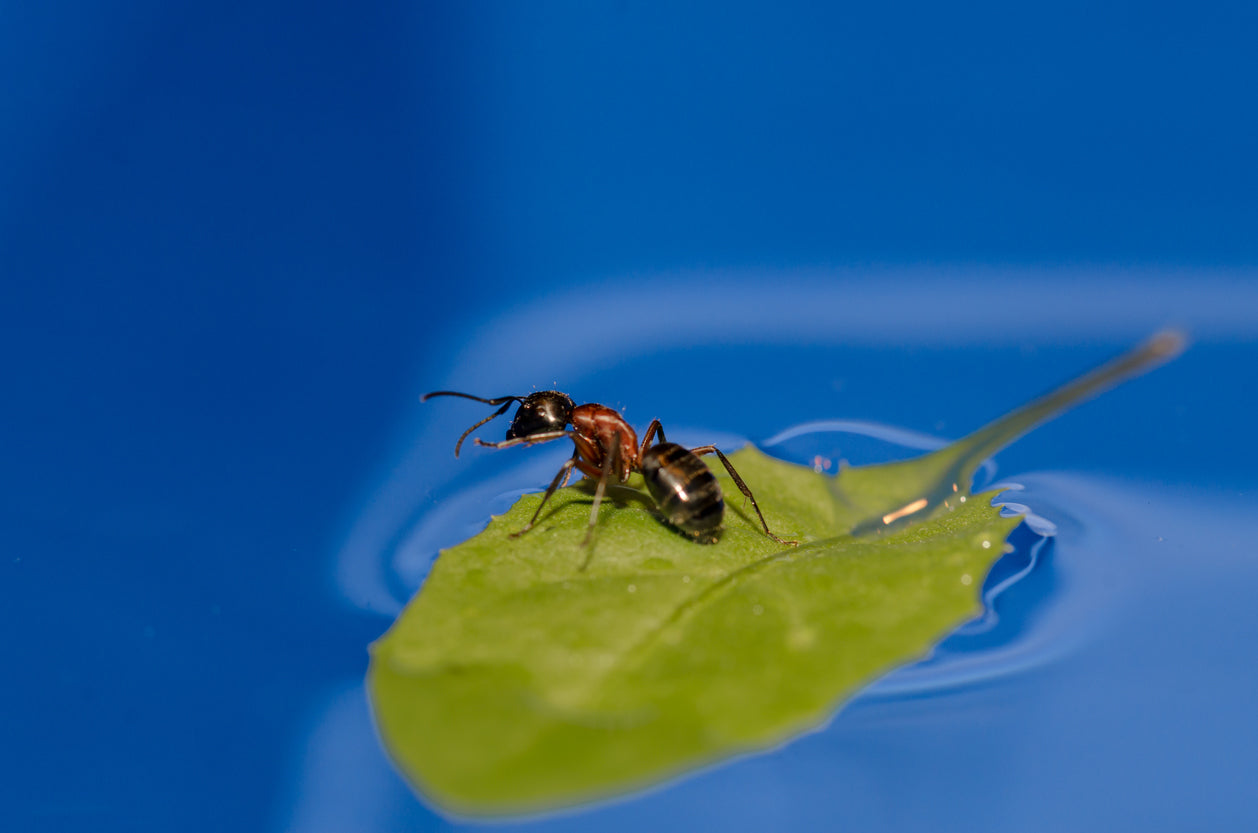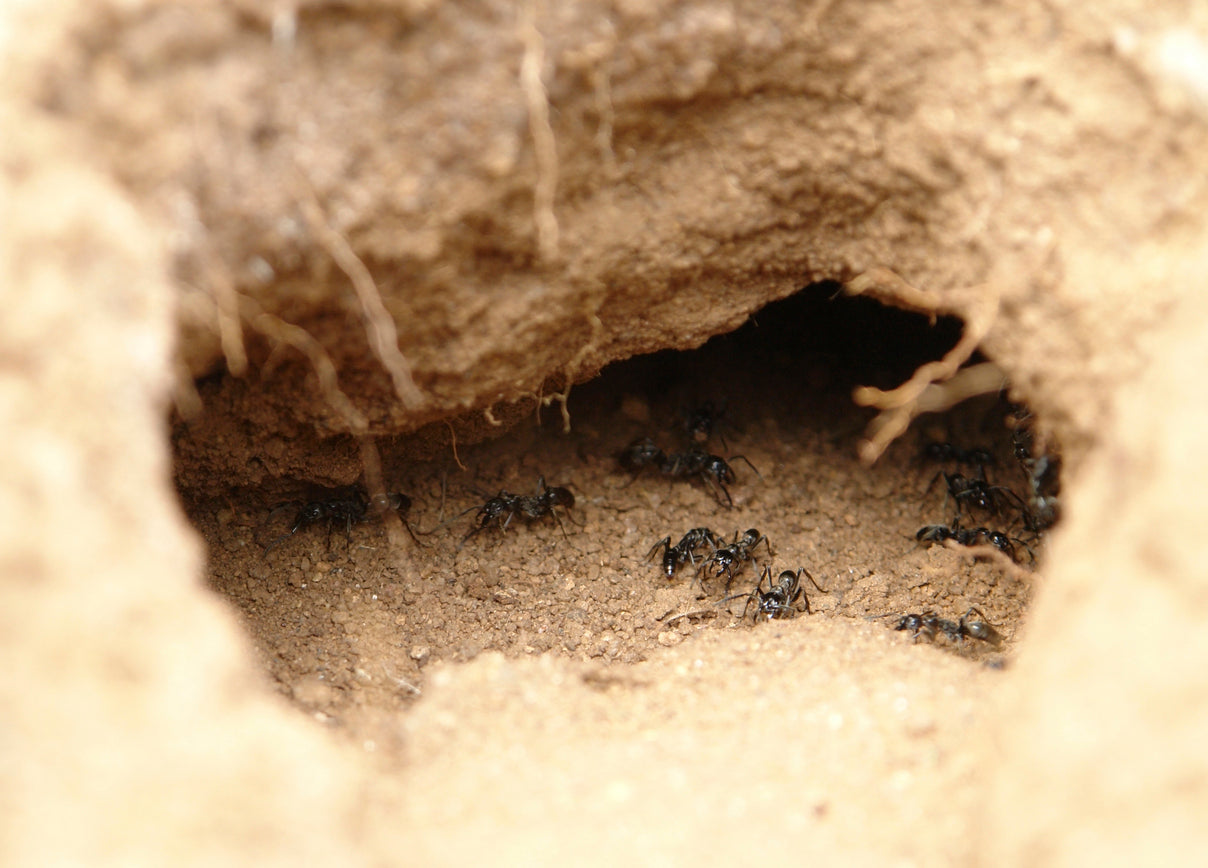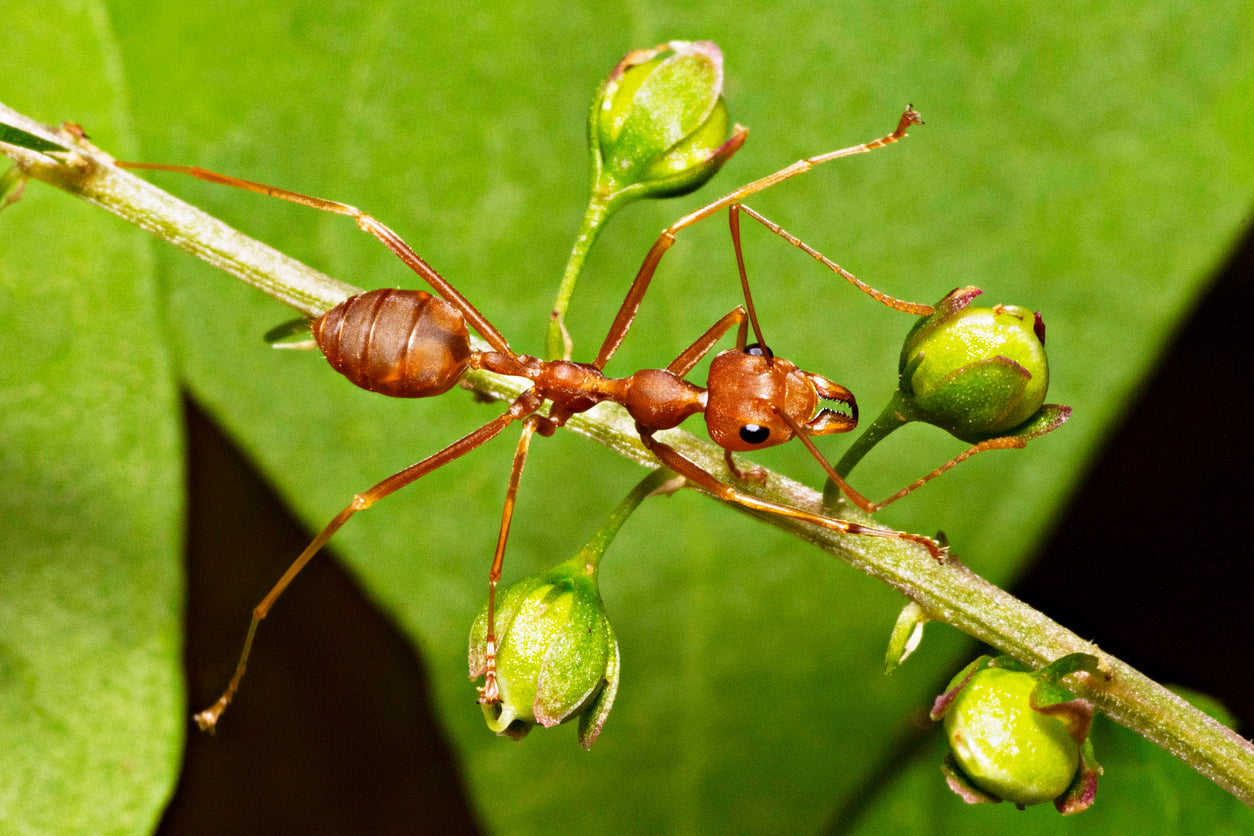Add description, images, menus and links to your mega menu
A column with no settings can be used as a spacer
Link to your collections, sales and even external links
Add up to five columns
Add description, images, menus and links to your mega menu
A column with no settings can be used as a spacer
Link to your collections, sales and even external links
Add up to five columns

How Long Can Ants Live Without Food?
By Spencer McManamna November 04, 2024 4 min read
You may know about the wide variety of foods ants like to munch on, but have you ever wondered how long they can go without a meal? The answer may surprise you! If you've got an appetite to learn more, let's dig in:
Carpenter Ants
Carpenter ants can survive for several weeks without food, typically ranging from two to six weeks depending on environmental conditions and their energy reserves. These ants, known scientifically as Camponotus, primarily feed on a diet that includes sugary substances, proteins, and fats, which they obtain from various sources such as honeydew produced by aphids, nectar from plants, and other insects. This diverse diet is essential for maintaining the colony's health, particularly for the workers who are responsible for foraging, caring for the brood, and maintaining the nest.
Harvester Ants
Our own Harvester ants can survive for only one to two weeks without food, although their ability to endure without nourishment depends on factors such as temperature and the availability of moisture. These ants, belonging to the Pogonomyrmex genus, are primarily known for their foraging behavior and specialized diets that revolve around seeds, which they actively collect and store. They have developed strong mandibles adapted for cutting and grinding seeds, allowing them to exploit various seed types depending on the season and habitat.
Black Ants
Black ants, which commonly refer to various species in the Lasius genus, can survive without food for approximately one to two weeks, depending on environmental conditions and the availability of moisture. These ants are opportunistic feeders, with diets primarily consisting of sugary substances, proteins, and organic matter. They often forage for honeydew produced by aphids, nectar from flowers, and dead insects, which provide essential nutrients for the colony.
Fire Ants
Fire Ants can also only survive without food for one to two weeks, and are aggressive foragers known for their painful stings and are often found in warm, temperate climates, such as the southern United States. These ants have a varied diet that includes proteins, carbohydrates, and fats. They primarily feed on seeds, insects, and honeydew produced by aphids, but they are also known to scavenge human food sources, making them a common nuisance in urban areas.
Queen Ants
Queen ants can typically survive for several weeks to a few months without food! Unlike worker ants, queens have the ability to store energy reserves, allowing them to endure periods of food scarcity, particularly during the early stages of colony establishment when they are responsible for laying eggs. Queen ants are primarily focused on reproduction, and their food sources vary by species. They often consume a high-protein diet to support egg production, which may include insects, nectar, and honeydew from aphids.
How Much Do Ants Eat?
Ants typically consume a small amount of food daily, with individual ants eating about 0.5 to 1 milligram of food. However, the total amount of food consumed by an entire ant colony can be substantial, often ranging from several grams to tens of grams per day, depending on the species and size of the colony. For example, a large colony of leafcutter ants can consume over a pound (about 450 grams) of plant material daily, as they rely on harvested leaves to cultivate their fungal gardens.
How Long Can Ants Live Without Food During Diapause?
During diapause, a state of dormancy that many ant species enter to survive winter conditions, ants can live without food for several weeks to a few months, depending on the species and their stored energy reserves. Diapause is triggered by environmental cues such as decreasing temperatures and shorter daylight hours, prompting ants to reduce their metabolic activity and conserve energy.
In preparation for this period, ants actively forage and gather food during the warmer months, storing energy in the form of fat and glycogen. Worker ants often collect a variety of food sources, including seeds, nectar, and proteins from insects, which they bring back to the nest. This food is then shared with the queen and brood, ensuring that the entire colony is well-fed before entering diapause.
As temperatures drop and food becomes scarce, ants retreat deeper into their nests, relying on their accumulated energy reserves to survive until warmer weather returns. During this time, their metabolic rate decreases, allowing them to endure long periods without food while maintaining enough energy to sustain essential functions, like nurturing the queen and developing brood once conditions finally get warmer and improve.
How Long Can Ants Live Without Water?
Ants can generally survive without water for about one to two weeks, although this can vary depending on the species, environmental conditions, and humidity levels. Some species are more resilient and can endure longer periods without water, especially those adapted to arid environments.
Ants use spiracles (small openings located along the sides of their bodies) to regulate gas exchange and minimize water loss. By controlling the opening and closing of these spiracles, ants can effectively manage their internal moisture levels. This adaptation is particularly crucial in hot or dry conditions, as it helps them conserve water while still allowing for respiration.
During diapause, many ant species enter a state of dormancy to survive winter conditions, during which their metabolic processes slow down significantly. In this state, ants can survive longer without water, sometimes extending their endurance to several weeks or even months.
Explore the Productive World of Ants with Insect Lore
Ready to dig a little deeper into the fascinating world of these industrious and endlessly surprising insects? Visit Insect Lore today to buy your own Ant Hill Habitat or Ants for your Ant Farm!
Related products
Also in Ants

What Ants Can Teach Us About Working Together
March 19, 2025 6 min read
Just as ants collaborate, relying on communication and coordination to complete complex tasks, humans thrive when working together, each individual bringing unique skills and perspectives to the table. In this article you will learn all about how ants work together, and what it can teach us about teamwork!

Ant Hills, Nests, and Tunnel Systems
November 04, 2024 6 min read
Can you dig it? One of the ant's most fascinating qualities is their ability to work together to create elaborate tunnel communities. But have you ever wondered how this process starts, and how they're able to create such structures? Read on to discover how our tiny friends are able to make such BIG habitats!

All About Ants: Climate and Temperature
November 04, 2024 4 min read
Ants play a significant role in controlling climate and temperature within their ecosystems through several fascinating behaviors and activities. Read on to learn more about how temperature and climate impacts ant behavior.

Enter Your Voucher Code Below
If you are experiencing difficulty redeeming your voucher on your desktop, please use a mobile device for a better redeeming experience.

We are unable to combine redemption fees. If you are redeeming 1-5 voucher codes, please complete separate purchases through our website for each voucher. If you are redeeming 6+ vouchers, please email us at customerservice@insectlore.com with your voucher codes and shipping address and we'll send you a custom invoice for payment.
Thank you for Redeeming your voucher!
You redeemed a $title

Don't miss this special one Time Offer.
Check the Box to Add this Special Offer to your Cart

Don't miss this special one Time Offer.
Check the Box to Add this Special Offer to your Cart
It looks like you are an Insect Lore UK/EU customer! You are visiting the Insect Lore USA website.
Click Insect Lore UK/EU website to be redirected to insectlore.co.uk.




